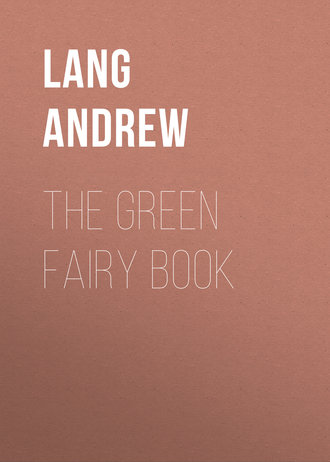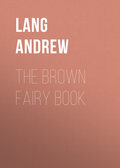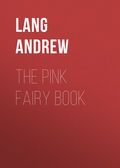
Lang Andrew
The Green Fairy Book
Grimm
THE TWELVE HUNTSMEN
Once upon a time there was a King's son who was engaged to a Princess whom he dearly loved. One day as he sat by her side feeling very happy, he received news that his father was lying at the point of death, and desired to see him before his end. So he said to his love: 'Alas! I must go off and leave you, but take this ring and wear it as a remembrance of me, and when I am King I will return and fetch you home.'
Then he rode off, and when he reached his father he found him mortally ill and very near death.
The King said: 'Dearest son, I have desired to see you again before my end. Promise me, I beg of you, that you will marry according to my wishes'; and he then named the daughter of a neighbouring King who he was anxious should be his son's wife. The Prince was so overwhelmed with grief that he could think of nothing but his father, and exclaimed: 'Yes, yes, dear father, whatever you desire shall be done.' Thereupon the King closed his eyes and died.
After the Prince had been proclaimed King, and the usual time of mourning had elapsed, he felt that he must keep the promise he had made to his father, so he sent to ask for the hand of the King's daughter, which was granted to him at once.
Now, his first love heard of this, and the thought of her lover's desertion grieved her so sadly that she pined away and nearly died. Her father said to her: 'My dearest child, why are you so unhappy? If there is anything you wish for, say so, and you shall have it.'
His daughter reflected for a moment, and then said: 'Dear father, I wish for eleven girls as nearly as possible of the same height, age, and appearance as myself.'
Said the King: 'If the thing is possible your wish shall be fulfilled'; and he had his kingdom searched till he found eleven maidens of the same height, size, and appearance as his daughter.
Then the Princess desired twelve complete huntsmen's suits to be made, all exactly alike, and the eleven maidens had to dress themselves in eleven of the suits, while she herself put on the twelfth. After this she took leave of her father, and rode off with her girls to the court of her former lover.
Here she enquired whether the King did not want some huntsmen, and if he would not take them all into his service. The King saw her but did not recognise her, and as he thought them very good-looking young people, he said, 'Yes, he would gladly engage them all.' So they became the twelve royal huntsmen.
Now, the King had a most remarkable Lion, for it knew every hidden or secret thing.
One evening the Lion said to the King: 'So you think you have got twelve huntsmen, do you?'
'Yes, certainly,' said the King, 'they are twelve huntsmen.'
'There you are mistaken,' said the Lion; 'they are twelve maidens.'
'That cannot possibly be,' replied the King; 'how do you mean to prove that?'
'Just have a number of peas strewed over the floor of your ante-chamber,' said the Lion, 'and you will soon see. Men have a strong, firm tread, so that if they happen to walk over peas not one will stir, but girls trip, and slip, and slide, so that the peas roll all about.'
The King was pleased with the Lion's advice, and ordered the peas to be strewn in his ante-room.
Fortunately one of the King's servants had become very partial to the young huntsmen, and hearing of the trial they were to be put to, he went to them and said: 'The Lion wants to persuade the King that you are only girls'; and then told them all the plot.
The King's daughter thanked him for the hint, and after he was gone she said to her maidens: 'Now make every effort to tread firmly on the peas.'
Next morning, when the King sent for his twelve huntsmen, and they passed through the ante-room which was plentifully strewn with peas, they trod so firmly and walked with such a steady, strong step that not a single pea rolled away or even so much as stirred. After they were gone the King said to the Lion: 'There now – you have been telling lies – you see yourself they walk like men.'
'Because they knew they were being put to the test,' answered the Lion; 'and so they made an effort; but just have a dozen spinning-wheels placed in the ante-room. When they pass through you'll see how pleased they will be, quite unlike any man.'
The King was pleased with the advice, and desired twelve spinning-wheels to be placed in his ante-chamber.
But the good-natured servant went to the huntsmen and told them all about this fresh plot. Then, as soon as the King's daughter was alone with her maidens, she exclaimed: 'Now, pray make a great effort and don't even look at those spinning-wheels.'
When the King sent for his twelve huntsmen next morning they walked through the ante-room without even casting a glance at the spinning-wheels.'
Then the King said once more to the Lion: 'You have deceived me again; they are men, for they never once looked at the spinning-wheels.'
The Lion replied: 'They knew they were being tried, and they did violence to their feelings.' But the King declined to believe in the Lion any longer.
So the twelve huntsmen continued to follow the King, and he grew daily fonder of them. One day whilst they were all out hunting it so happened that news was brought that the King's intended bride was on her way and might soon be expected. When the true bride heard of this she felt as though a knife had pierced her heart, and she fell fainting to the ground. The King, fearing something had happened to his dear huntsman, ran up to help, and began drawing off his gloves. Then he saw the ring which he had given to his first love, and as he gazed into her face he knew her again, and his heart was so touched that he kissed her, and as she opened her eyes, he cried: 'I am thine and thou art mine, and no power on earth can alter that.'
To the other Princess he despatched a messenger to beg her to return to her own kingdom with all speed. 'For,' said he, 'I have got a wife, and he who finds an old key again does not require a new one.'
Thereupon the wedding was celebrated with great pomp, and the Lion was restored to the royal favour, for after all he had told the truth.
Grimm
SPINDLE, SHUTTLE, AND NEEDLE
Once upon a time there lived a girl who lost her father and mother when she was quite a tiny child. Her godmother lived all alone in a little cottage at the far end of the village, and there she earned her living by spinning, weaving, and sewing. The old woman took the little orphan home with her and brought her up in good, pious, industrious habits.
When the girl was fifteen years old, her godmother fell ill, and, calling the child to her bedside, she said: 'My dear daughter, I feel that my end is near. I leave you my cottage, which will, at least, shelter you, and also my spindle, my weaver's shuttle, and my needle, with which to earn your bread.'
Then she laid her hands on the girl's head, blessed her, and added: 'Mind and be good, and then all will go well with you.' With that she closed her eyes for the last time, and when she was carried to her grave the girl walked behind her coffin weeping bitterly, and paid her all the last honours.
After this the girl lived all alone in the little cottage. She worked hard, spinning, weaving, and sewing, and her old godmother's blessing seemed to prosper all she did. The flax seemed to spread and increase; and when she wove a carpet or a piece of linen, or made a shirt, she was sure to find a customer who paid her well, so that not only did she feel no want herself, but she was able to help those who did.
Now, it happened that about this time the King's son was making a tour through the entire country to look out for a bride. He could not marry a poor woman, and he did not wish for a rich one.
'She shall be my wife,' said he, 'who is at once the poorest and the richest.'
When he reached the village where the girl lived, he inquired who was the richest and who the poorest woman in it. The richest was named first; the poorest, he was told, was a young girl who lived alone in a little cottage at the far end of the village.
The rich girl sat at her door dressed out in all her best clothes, and when the King's son came near she got up, went to meet him, and made him a low curtsey. He looked well at her, said nothing, but rode on further.
When he reached the poor girl's house he did not find her at her door, for she was at work in her room. The Prince reined in his horse, looked in at the window through which the sun was shining brightly, and saw the girl sitting at her wheel busily spinning away.
She looked up, and when she saw the King's son gazing in at her, she blushed red all over, cast down her eyes and span on. Whether the thread was quite as even as usual I really cannot say, but she went on spinning till the King's son had ridden off. Then she stepped to the window and opened the lattice, saying, 'The room is so hot,' but she looked after him as long as she could see the white plumes in his hat.
Then she sat down to her work once more and span on, and as she did so an old saying which, she had often heard her godmother repeat whilst at work, came into her head, and she began to sing:
'Spindle, spindle, go and see,
If my love will come to me.'
Lo, and behold! the spindle leapt from her hand and rushed out of the room, and when she had sufficiently recovered from her surprise to look after it she saw it dancing merrily through the fields, dragging a long golden thread after it, and soon it was lost to sight.
The girl, having lost her spindle, took up the shuttle and, seating herself at her loom, began to weave. Meantime the spindle danced on and on, and just as it had come to the end of the golden thread, it reached the King's son.
'What do I see?' he cried; 'this spindle seems to wish to point out the way to me.' So he turned his horse's head and rode back beside the golden thread.
Meantime the girl sat weaving, and sang:
'Shuttle, weave both web and woof,
Bring my love beneath my roof.'
The shuttle instantly escaped from her hand, and with one bound was out at the door. On the threshold it began weaving the loveliest carpet that was ever seen. Roses and lilies bloomed on both sides, and in the centre a thicket seemed to grow with rabbits and hares running through it, stags and fawns peeping through the branches, whilst on the topmost boughs sat birds of brilliant plumage and so life-like one almost expected to hear them sing. The shuttle flew from side to side and the carpet seemed almost to grow of itself.
As the shuttle had run away the girl sat down to sew. She took her needle and sang:
'Needle, needle, stitch away,
Make my chamber bright and gay,'
and the needle promptly slipped from her fingers and flew about the room like lightning. You would have thought invisible spirits were at work, for in next to no time the table and benches were covered with green cloth, the chairs with velvet, and elegant silk curtains hung before the windows. The needle had barely put in its last stitch when the girl, glancing at the window, spied the white plumed hat of the King's son who was being led back by the spindle with the golden thread.
He dismounted and walked over the carpet into the house, and when he entered the room there stood the girl blushing like any rose. 'You are the poorest and yet the richest,' said he: 'come with me, you shall be my bride.'
She said nothing, but she held out her hand. Then he kissed her, and led her out, lifted her on his horse and took her to his royal palace, where the wedding was celebrated with great rejoicings.
The spindle, the shuttle, and the needle were carefully placed in the treasury, and were always held in the very highest honour.
Grimm
THE CRYSTAL COFFIN
Now let no one say that a poor tailor can't get on in the world, and, indeed, even attain to very high honour. Nothing is required but to set the right way to work, but of course the really important thing is to succeed.
A very bright active young tailor once set off on his travels, which led him into a wood, and as he did not know the way he soon lost himself. Night came on, and there seemed to be nothing for it but to seek out the best resting-place he could find. He could have made himself quite comfortable with a bed of soft moss, but the fear of wild beasts disturbed his mind, and at last he determined to spend the night in a tree.
He sought out a tall oak tree, climbed up to the top, and felt devoutly thankful that his big smoothing-iron was in his pocket, for the wind in the tree-tops was so high that he might easily have been blown away altogether.
After passing some hours of the night, not without considerable fear and trembling, he noticed a light shining at a little distance, and hoping it might proceed from some house where he could find a better shelter than in the top of the tree, he cautiously descended and went towards the light. It led him to a little hut all woven together of reeds and rushes. He knocked bravely at the door, which opened, and by the light which shone from within he saw an old grey-haired man dressed in a coat made of bright-coloured patches. 'Who are you, and what do you want?' asked the old man roughly.
'I am a poor tailor,' replied the youth. 'I have been benighted in the forest, and I entreat you to let me take shelter in your hut till morning.'
'Go your way,' said the old man in a sulky tone, 'I'll have nothing to do with tramps. You must just go elsewhere.'
With these words he tried to slip back into his house, but the tailor laid hold of his coat-tails, and begged so hard to be allowed to stay that the old fellow, who was by no means as cross as he appeared, was at length touched by his entreaties, let him come in, and after giving him some food, showed him quite a nice bed in one corner of the room. The weary tailor required no rocking to rest, but slept sound till early morning, when he was roused from his slumbers by a tremendous noise. Loud screams and shouts pierced the thin walls of the little hut. The tailor, with new-born courage, sprang up, threw on his clothes with all speed and hurried out. There he saw a huge black bull engaged in a terrible fight with a fine large stag. They rushed at each other with such fury that the ground seemed to tremble under them and the whole air to be filled with their cries. For some time it appeared quite uncertain which would be the victor, but at length the stag drove his antlers with such force into his opponent's body that the bull fell to the ground with a terrific roar, and a few more strokes finished him.
The tailor, who had been watching the fight with amazement, was still standing motionless when the stag bounded up to him, and before he had time to escape forked him up with its great antlers, and set off at full gallop over hedges and ditches, hill and dale, through wood and water. The tailor could do nothing but hold on tight with both hands to the stag's horns and resign himself to his fate. He felt as if he were flying along. At length the stag paused before a steep rock and gently let the tailor down to the ground.
Feeling more dead than alive, he paused for a while to collect his scattered senses, but when he seemed somewhat restored the stag struck such a blow on a door in the rock that it flew open. Flames of fire rushed forth, and such clouds of steam followed that the stag had to avert its eyes. The tailor could not think what to do or which way to turn to get away from this awful wilderness, and to find his way back amongst human beings once more.
As he stood hesitating, a voice from the rock cried to him: 'Step in without fear, no harm shall befall you.'
He still lingered, but some mysterious power seemed to impel him, and passing through the door he found himself in a spacious hall, whose ceiling, walls, and floor were covered with polished tiles carved all over with unknown figures. He gazed about, full of wonder, and was just preparing to walk out again when the same voice bade him: 'Tread on the stone in the middle of the hall, and good luck will attend you.'
By this time he had grown so courageous that he did not hesitate to obey the order, and hardly had he stepped on the stone than it began to sink gently with him into the depths below. On reaching firm ground he found himself in a hall of much the same size as the upper one, but with much more in it to wonder at and admire. Round the walls were several niches, in each of which stood glass vessels filled with some bright-coloured spirit or bluish smoke. On the floor stood two large crystal boxes opposite each other, and these attracted his curiosity at once.
Stepping up to one of them, he saw within it what looked like a model in miniature of a fine castle surrounded by farms, barns, stables, and a number of other buildings. Everything was quite tiny, but so beautifully and carefully finished that it might have been the work of an accomplished artist. He would have continued gazing much longer at this remarkable curiosity had not the voice desired him to turn round and look at the crystal coffin which stood opposite.
What was his amazement at seeing a girl of surpassing loveliness lying in it! She lay as though sleeping, and her long, fair hair seemed to wrap her round like some costly mantle. Her eyes were closed, but the bright colour in her face, and the movement of a ribbon, which rose and fell with her breath, left no doubt as to her being alive.
As the tailor stood gazing at her with a beating heart, the maiden suddenly opened her eyes, and started with delighted surprise.
'Great heavens!' she cried, 'my deliverance approaches! Quick, quick, help me out of my prison; only push back the bolt of this coffin and I am free.'
The tailor promptly obeyed, when she quickly pushed back the crystal lid, stepped out of the coffin and hurried to a corner of the hall, when she proceeded to wrap herself in a large cloak. Then she sat down on a stone, desired the young man to come near, and, giving him an affectionate kiss, she said, 'My long-hoped-for deliverer, kind heaven has led you to me, and has at length put an end to all my sufferings. You are my destined husband, and, beloved by me, and endowed with every kind of riches and power, you shall spend the remainder of your life in peace and happiness. Now sit down and hear my story. I am the daughter of a wealthy nobleman. My parents died when I was very young, and they left me to the care of my eldest brother, by whom I was carefully educated. We loved each other so tenderly, and our tastes and interests were so much alike that we determined never to marry, but to spend our entire lives together. There was no lack of society at our home. Friends and neighbours paid us frequent visits, and we kept open house for all. Thus it happened that one evening a stranger rode up to the castle and asked for hospitality, as he could not reach the nearest town that night. We granted his request with ready courtesy, and during supper he entertained us with most agreeable conversation, mingled with amusing anecdotes. My brother took such a fancy to him that he pressed him to spend a couple of days with us, which, after a little hesitation, the stranger consented to do. We rose late from table, and whilst my brother was showing our guest to his room I hurried to mine, for I was very tired and longed to get to bed. I had hardly dropped off to sleep when I was roused by the sound of some soft and charming music. Wondering whence it could come, I was about to call to my maid who slept in the room next mine, when, to my surprise, I felt as if some heavy weight on my chest had taken all power from me, and I lay there unable to utter the slightest sound. Meantime, by the light of the night lamp, I saw the stranger enter my room, though the double doors had been securely locked. He drew near and told me that through the power of his magic arts he had caused the soft music to waken me, and had made his way through bolts and bars to offer me his hand and heart. My repugnance to his magic was so great that I would not condescend to give any answer. He waited motionless for some time, hoping no doubt for a favourable reply, but as I continued silent he angrily declared that he would find means to punish my pride, and therewith he left the room in a rage.
'I spent the night in the greatest agitation, and only fell into a doze towards morning. As soon as I awoke I jumped up, and hurried to tell my brother all that had happened, but he had left his room, and his servant told me that he had gone out at daybreak to hunt with the stranger.
'My mind misgave me. I dressed in all haste, had my palfrey saddled, and rode of at full gallop towards the forest, attended by one servant only. I pushed on without pausing, and ere long I saw the stranger coming towards me, and leading a fine stag. I asked him where he had left my brother, and how he had got the stag, whose great eyes were overflowing with tears. Instead of answering he began to laugh, and I flew into such a rage that I drew a pistol and fired at him; but the bullet rebounded from his breast and struck my horse in the forehead. I fell to the ground, and the stranger muttered some words, which robbed me of my senses.
'When I came to myself I was lying in a crystal coffin in this subterranean vault. The Magician appeared again, and told me that he had transformed my brother into a stag, had reduced our castle and all its defences to miniature and locked them up in a glass box, and after turning all our household into different vapours had banished them into glass phials. If I would only yield to his wishes he could easily open these vessels, and all would then resume their former shapes.
'I would not say a word more than I had done previously, and he vanished, leaving me in my prison, where a deep sleep soon fell on me. Amongst the many dreams which floated through my brain was a cheering one of a young man who was to come and release me, and to-day, when I opened my eyes, I recognised you and saw that my dream was fulfilled. Now help me to carry out the rest of my vision. The first thing is to place the glass box which contains my castle on this large stone.'
As soon as this was done the stone gently rose through the air and transported them into the upper hall, whence they easily carried the box into the outer air. The lady then removed the lid, and it was marvellous to watch the castle, houses, and farmyards begin to grow and spread themselves till they had regained their proper size. Then the young couple returned by means of the movable stone, and brought up all the glass vessels filled with smoke. No sooner were they uncorked than the blue vapours poured out and became transformed to living people, in whom the lady joyfully recognised her many servants and attendants.
Her delight was complete when her brother (who had killed the Magician under the form of a bull) was seen coming from the forest in his proper shape, and that very day, according to her promise, she gave her hand in marriage to the happy young tailor.







